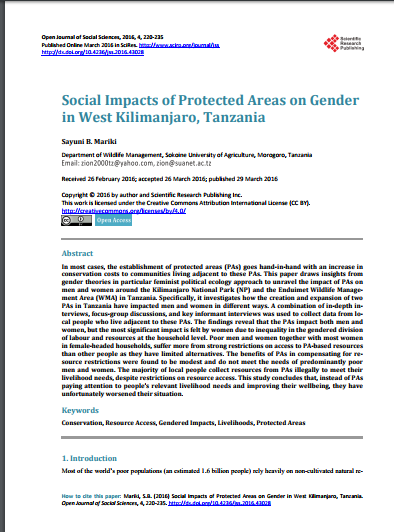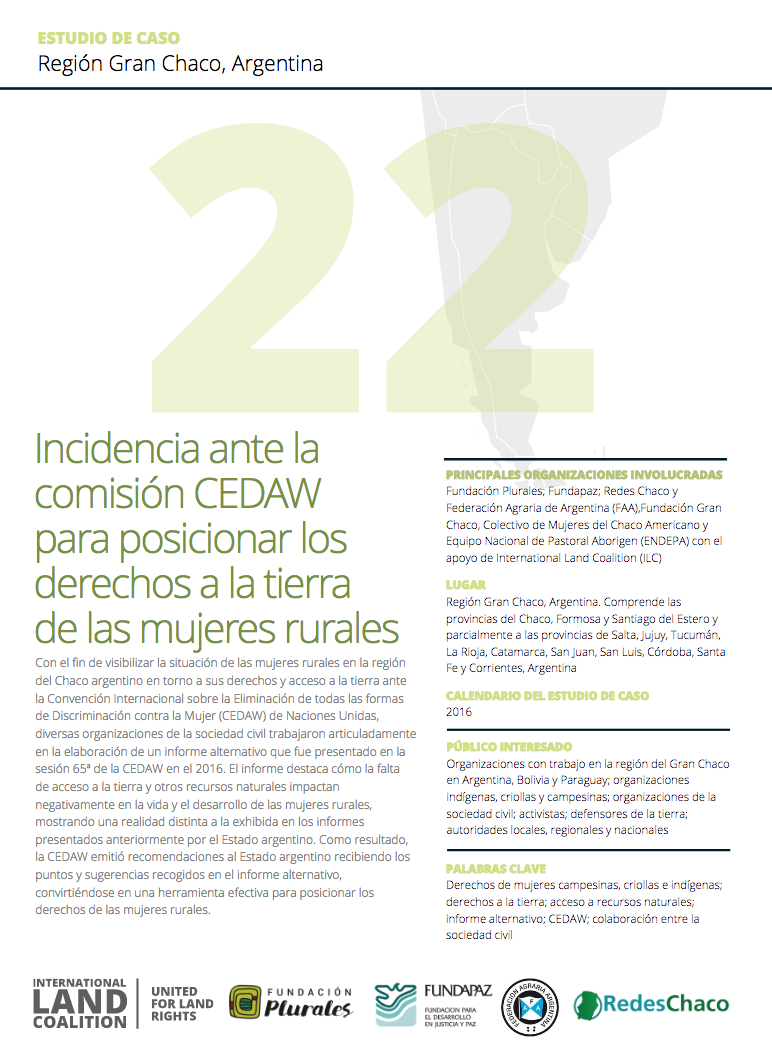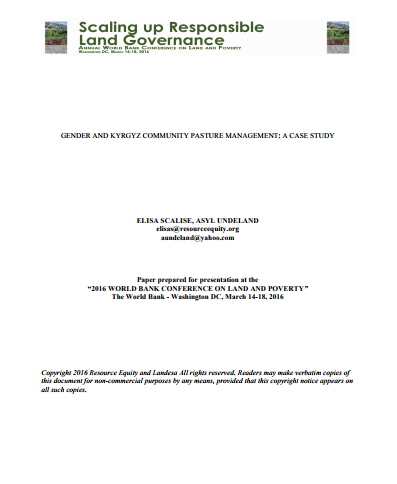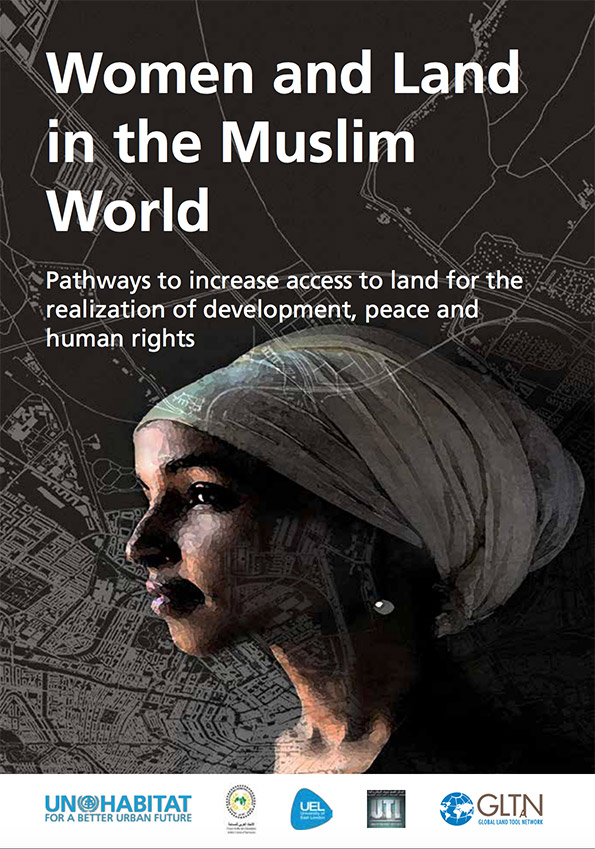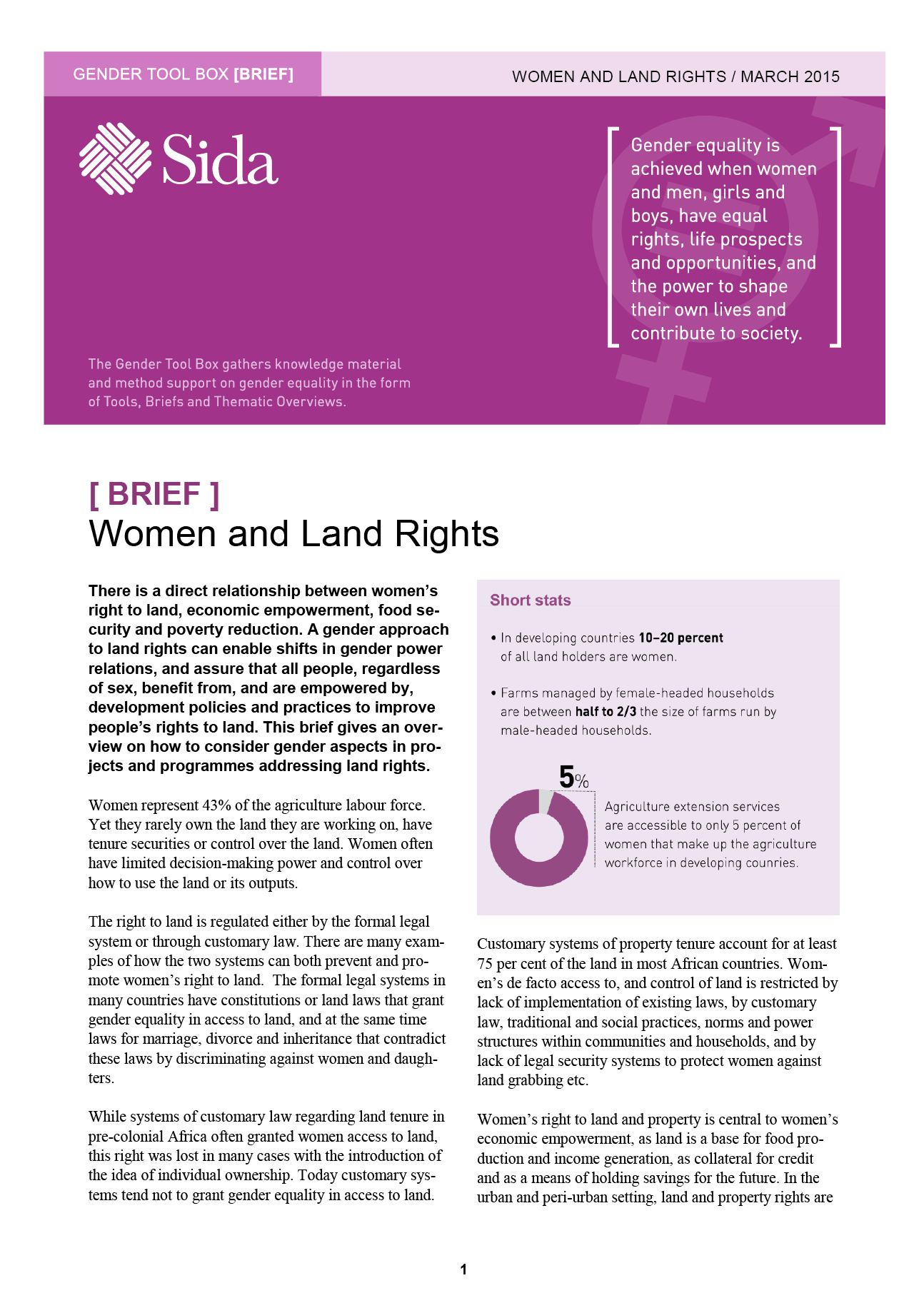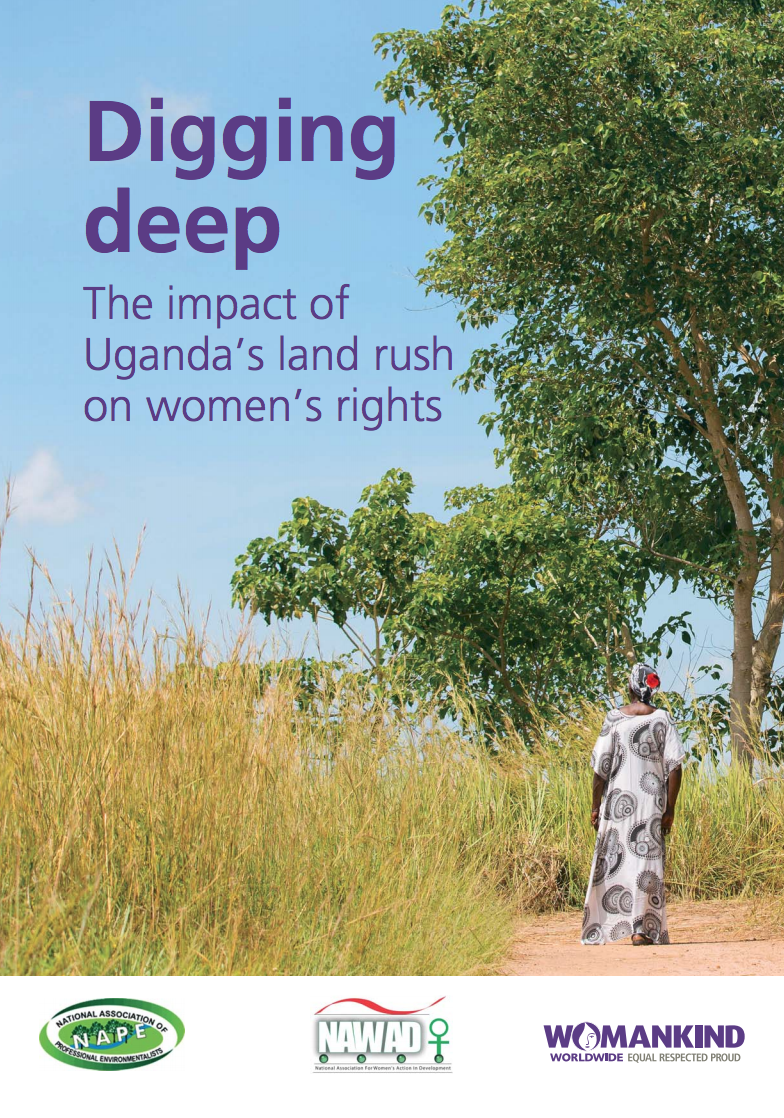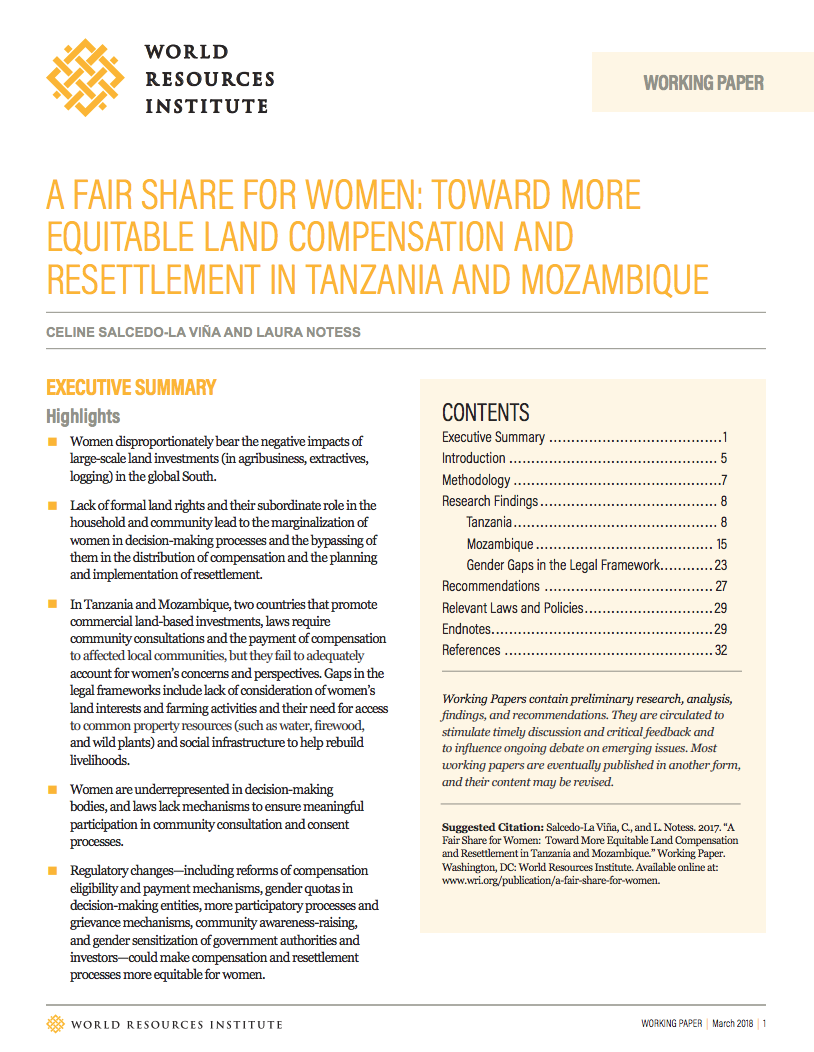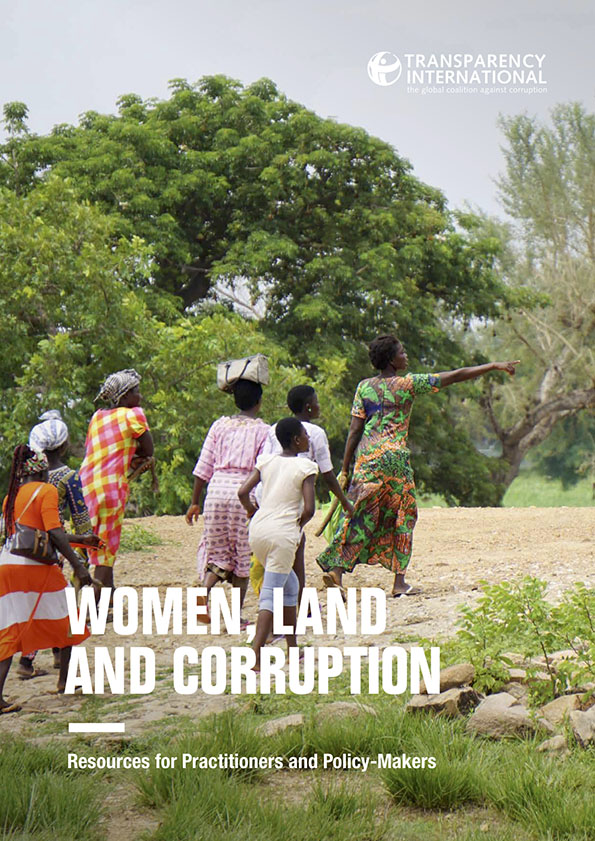Social Impacts of Protected Areas on Gender in West Kilimanjaro, Tanzania
In most cases, the establishment of protected areas (PAs) goes hand-in-hand with an increase in conservation costs to communities living adjacent to these PAs. This paper draws insights from gender theories in particular feminist political ecology approach to unravel the impact of PAs on men and women around the Kilimanjaro National Park (NP) and the Enduimet Wildlife Management Area (WMA) in Tanzania. Specifically, it investigates how the creation and expansion of two PAs in Tanzania have impacted men and women in different ways.

